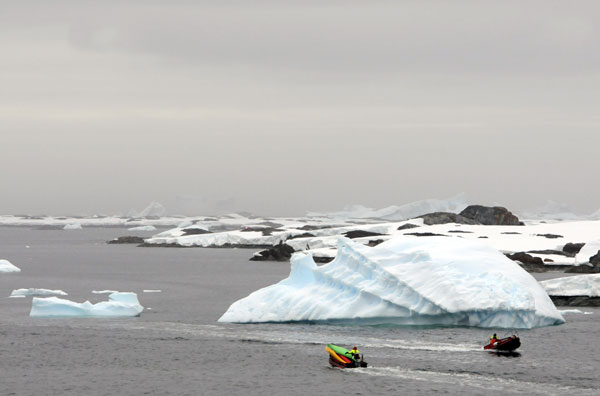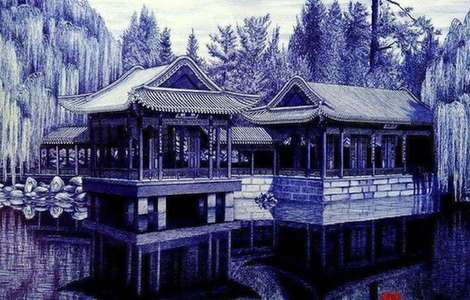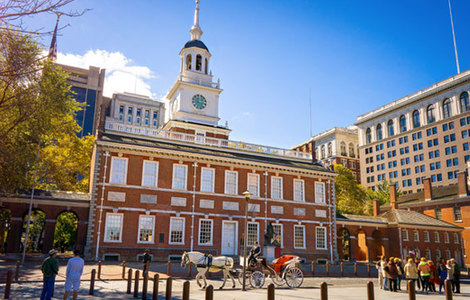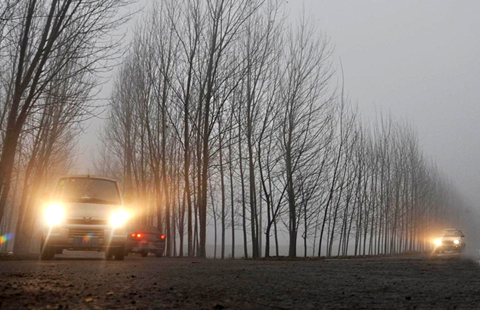Explore the planet's most southern point
Updated: 2015-03-18 07:18
By Han Song(China Daily)
|
||||||||
 |
|
Visitors abord a cruise to Antarctica are amazed by sceneries of a seemingly alien planet. [Photo provided to China Daily] |
Antarctica is perhaps the closest travelers can come to experiencing an alien planet.
I took on a cruise to the mystical continent in January and spent half a month there. It was amazing.
It was a long trip. It was 11 hours from Beijing to Frankfurt by air, then 14 hours to Argentina's Buenos Aires and three and a half hours to Ushuaia, where we boarded the ship to the compass' southernmost point.
The guestrooms looked like soft sleepers in a train. Each room housed two passengers, and hot water was available 24 hours.
We were warned against disturbing or feeding animals, littering, introducing alien species, stepping on plants or blocking penguins.
We first entered the Beagle Channel. Serenity prevailed. Snowy mountains stretched in both directions.
That serenity was shaken as winds blasted, pushing up waves that shoved the boat around as we crossed through the Drake Passage.
It felt like my body was being twisted inside out. But I'd heard this stretch could be even harsher.
The captain explained that 15-meter-per-second winds were splashing up waves 5 meters high.
The clouds above Elephant Island were dark and rolling in contrast to the colossal silver-white peaks in the background.
Stillness returned at Danco Coast. Giant ice hunks floated on translucent green water. The clouds were red. Sunrays cut through the haze to spotlight the snow peaks.
Snowflakes danced on the breeze when we reached Deception Island.
Yellow kelp was scattered on the banks like confetti, and craters dotted the topography, while white snow marbled black rocks.
We saw abandoned oil tanks and a research station. Tens of thousands of penguins speckled the alps.
Steam twisted off hot springs in the nearby sea. Some of us shed our clothes and dove in.
A 250-meter-high peak crowns Isla Cuverville. It was covered with penguins.
They swaggered everywhere, building nests, hunting and feeding their offspring.
Seeing how they lived was an epiphany that revealed the essence of life.
Humpback whales bobbed in Wilhelmina Bay.
Most Viewed
Editor's Picks

|

|

|

|

|

|
Today's Top News
Skyscraper built in 19 days
Xi recognizes Kissinger as 'trailblazer'
Huayi Brothers clinches films deal
Rising steel imports spur calls for action in Washington
China paying more attention to corporate governance
President Xi sees Harvard head
US easily top exporter of arms; China No. 3, but imports dive
Huayi Brothers Media Corp clinches US films deal
US Weekly

|

|
















